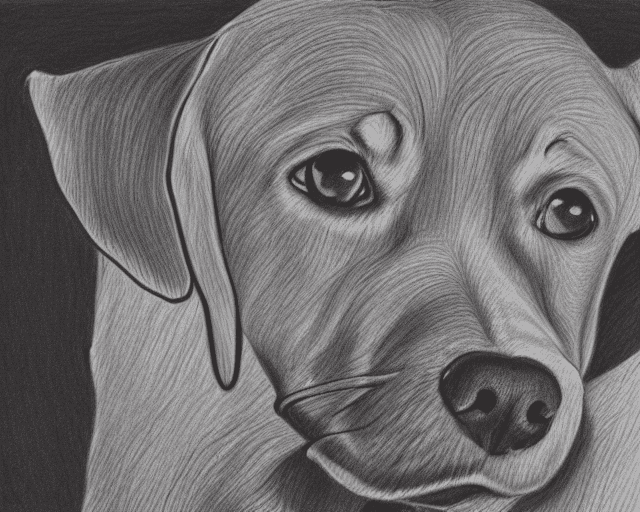Diarrhea is a natural process your dog undergoes as a way to eliminate toxins and infections. In some cases, it can be caused by an intestinal parasite or a foreign object. Fortunately, it’s a treatable condition. If you suspect your dog is suffering from diarrhea, read on to find out the cause, treatment, and prevention methods.
Diarrhea is a way for your dog’s body to remove toxins and infections
Dogs can develop diarrhea in a variety of situations. It may be caused by an inappropriate diet or by moving or staying in a boarding kennel. It may also be caused by an infection. Diarrhea can also be an indication of worms, Giardia, coccidia, or a foreign body ingestion.
Diarrhea can be prevented by providing your dog with probiotics, which are bacteria that aid in digestion. A probiotic supplement will help your dog’s digestive system keep a balance of beneficial bacteria, and it will also help your dog get rid of toxins. A probiotic supplement is available in the form of yogurt and should be given along with plenty of fresh water.
Diarrhea can be either acute or chronic. Acute diarrhea will resolve on its own, but chronic diarrhea is more serious and requires a visit to a veterinarian. Chronic diarrhea in a dog can lead to weight loss, a dry coat, and lethargy.
Diarrhea in dogs is caused by an infection or a bacterial infection, but it can also be caused by a minor health issue such as a parasite. However, it is best to visit a veterinarian if you suspect your dog is experiencing diarrhea. A veterinarian can diagnose the exact cause and recommend the best treatment for your dog. Diarrhea in dogs is a common problem, but it’s important to know when to seek medical attention and treat it before it becomes more serious.
Diarrhea can also indicate that your dog has worms. Intestinal worms appear as spaghetti-like threads in the poop. The intestines produce bile, which can make the stool yellow. Diarrhea in dogs that is orange or yellow could be an indicator of a liver or gallbladder problem.
It can be caused by intestinal parasites
Dog diarrhea is often a symptom of intestinal parasite infection. These parasites can be caused by a variety of different reasons, including intestinal worms, tapeworms, and fleas. Dogs can become infected by ingesting flea feces, which can carry parasite eggs. Diarrhea is one of the most common symptoms of intestinal parasite infection, as is vomiting. However, many dogs do not display any symptoms of parasite infection. Fortunately, parasite testing can be performed to confirm the presence of parasites.
GI parasites are contagious to humans and other animals, so prevention is important. The larvae are passed in the pet’s feces, where they can live and multiply for months. In addition, GI parasites can be transmitted to humans and may cause scarring and inflammation.
While it is possible for dogs to pick up intestinal parasites from contaminated surfaces and infective feces, they can also be caught from aquatic life. Symptoms include blood and mucus in the loose stool. Fortunately, these intestinal parasites can be treated with proper hygiene.
It is important to understand that intestinal parasites are easy to treat and prevent. In fact, many people are already protecting their pets from these problems. Regular testing for intestinal parasites is recommended. For this reason, many monthly heartworm medications also contain a broad dewormer to protect your pet against a variety of intestinal parasites.
Tapeworm is one of the most common intestinal parasites. Tapeworm eggs can be passed from one pet to another via fleas and other animals. Tapeworm eggs can also infect humans.
It can be caused by a foreign object
Foreign objects can obstruct the passage of food through the digestive tract. While a small object is easily removed, larger ones can cause intestinal obstruction and vomiting. These types of obstructions may also be painful, as they may cause the peristaltic motion of the colon to squeeze the foreign object. If you suspect that your dog has a foreign body, it is important to get your dog medical attention. If the foreign object is not removed promptly, it may cause damage to the gut wall, compromise blood flow, and devitalization of the intestines. It may also rupture, allowing bacteria to enter the abdomen and cause severe pain, shock, and even death.
In addition to causing diarrhea, a foreign object can also cause vomiting. Vomiting is one of the first signs that your pet has a foreign body in its intestines. The object can remain in the intestines for a long time, causing intermittent or chronic vomiting. Some foreign bodies may block the small intestine and cause the symptoms of gastroenteritis, including vomiting and loss of appetite. Depending on where the foreign object is located, a veterinarian may be able to feel it during a physical exam. Other tests such as radiographs may be necessary to confirm the diagnosis.
Foreign objects that a dog may have swallowed can cause severe damage to its digestive tract. This obstruction can result in chronic diarrhea or constipation. If you suspect that your dog has swallowed a foreign object, be sure to check for blood in the stool. This may be an indicator of a sharp object. If you suspect your dog has swallowed something sharp, it is important to seek medical attention as soon as possible.
It can be treated at home
Diarrhea in dogs is a common complaint. Luckily, it’s easy to identify, and many cases can be treated at home. However, if the diarrhea persists for a long time or has other symptoms, you should seek veterinary care immediately. This is especially important if the diarrhea is not improving after a change in diet.
First, determine the cause of your dog’s diarrhea. It may be a simple case of watery diarrhea, or it could be an indication of a more serious condition. In either case, retrace your dog’s steps before they got sick and ask them if they recently ate anything.
Another option is to use herbal remedies. These can help speed up your dog’s healing. For instance, slippery elm can help soothe mucous membranes and soothe the intestinal lining. Another natural remedy for diarrhea is L-glutamine, an amino acid that’s safe for dogs and easy on their digestive tract.
There are many causes of diarrhea in dogs, but it’s best to consult with a veterinarian if it’s persistent or recurring. A veterinarian can perform diagnostic tests to determine the root cause and prescribe the right treatment. Alternatively, you can try home remedies such as probiotics, a science-backed solution that helps boost your dog’s immune system and digestive health.
While you’re at home, be sure to keep an eye out for signs of dog diarrhea. First, examine the gums. They should be pink and shiny. If they’re sticky or are not responding to your touch, your dog may be dehydrated. You can also use a syringe with a needle removed to introduce water to your dog’s digestive system.
It can be treated by a veterinarian
A veterinarian can prescribe medications for dogs with diarrhea. These can include anti-diarrheal medications and de-wormers. They can also give your pet probiotics to help restore gastrointestinal balance. In some cases, a change in diet may be required. Be sure to keep your veterinarian updated on your dog’s progress.
Diarrhea in dogs is a common complaint to veterinarians. Luckily, it’s easy to recognize and treat. Although the symptoms are usually minor, the longer you delay treatment, the more serious it can be. While some of these symptoms can be treated at home, you should always seek a veterinarian if they continue to occur.
Diarrhea can be caused by a variety of problems, including sudden changes in diet or environmental changes. However, the most common cause of dog diarrhea is stress. When changing the diet of your pet, you should gradually add a small amount of fresh food and increase the serving size. Dogs are also susceptible to intestinal parasites, which can affect their digestive tract and cause diarrhea. This can cause the poop to look greasy, frothy, or mixed with mucus. A veterinarian will be able to diagnose the exact cause of your pet’s condition and recommend the best course of treatment.
Your veterinarian may recommend a bland diet for a few days. This diet should be given to your dog in small amounts every three to four hours until the diarrhea is gone. After two weeks, you can slowly transition the diet to a regular one. Do not offer any treats to your pet during this time.
A veterinarian can perform various tests to diagnose the cause of your dog diarrhea. A stool sample can help the veterinarian determine the exact cause of the problem. Blood tests and parasite tests may also be ordered. Diagnosing diarrhea can also help your veterinarian determine the best treatment for your dog.













